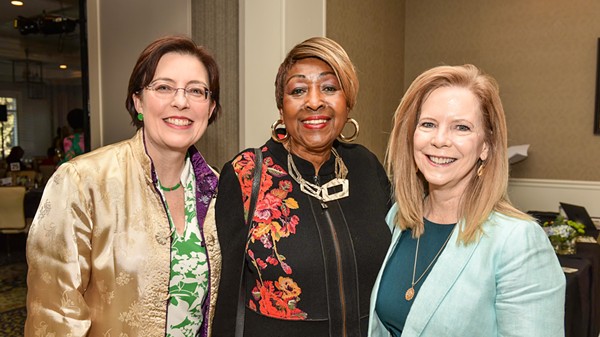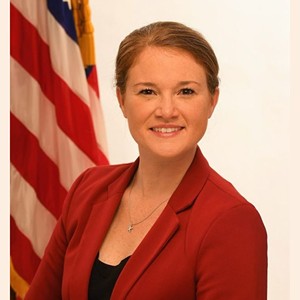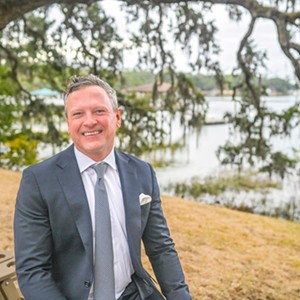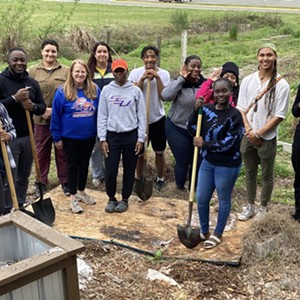SHAME has great power, whether positive or negative.
We can shame people and organizations on illegitimate grounds, to exert power or prejudice.
We can shame people and organizations on a more firm basis, to convey a sense of shared values and healthy boundaries.
Social media is perhaps the most efficient vector of shaming ever invented. (A cynic might counter with the Roman Catholic Church, but I digress.)
We’ve all seen, and probably experienced firsthand, the extremely negative nature of shaming on social media.
And if we’re being honest, most of us have engaged in a bit of shaming ourselves.
But every now and then, social media gets it right, and serves the public good.
The biggest non-COVID-19 news story in the country right now is the shooting death of Ahmaud Arbery, a short drive down the coast in Brunswick, Ga.
It is sad that such a unique and beautiful natural area of the country is garnering such negative national attention; but the human history of that area unfortunately isn’t as highly recommended as the stunning habitat itself.
(In this issue, Rachael Flora does a great job exploring the deeply problematic environment in Glynn County, Ga., which enabled this tragedy.)
The more you look into it, the more you see that the killing of Arbery was no one-off, but was the result of a system which seemed deliberately designed to encourage the kind of apparent vigilantism shown in the horrifying video, and to exonerate the attackers.
As many, many others have noted, probably the only reason his attackers are facing justice at all is because of the viral video, shared on social media.
There were many entrenched institutional structures and actions in place to shield the McMichaels, arguably beginning with the original decision by a local DA not to arrest the pair two months ago, right after the killing.
While it is itself shameful that it took a graphic viral video to shine light on a such long-standing corruption and racism, one can at least take solace and some form of comfort in the massive public reaction on social media to Arbery’s killing.
Shame is powerful, and in this case it took the power of shame to bend the arc of justice.
As I write this, a new prosecutor has been named in the case, from Cobb County — partially to escape the web of nepotism and corruption that coastal Georgia has long been notorious for.
While it may be scant comfort to some that the Trump Department of Justice is also now looking into the case, it’s important to keep in mind that the Justice Department is full of career attorneys and staffers for whom the sitting president in the White House isn’t a major factor.
And in any case, it’s better that the federal government is looking into the case rather than not.
Ah, but there’s still COVID-19. And shame there has proven effective, at least in some areas.
As I write elsewhere in this issue, The Landings Association opted to give back nearly $800,000 it received in Paycheck Protection Program (PPP) funding, due to public shaming.
While the Landings – an affluent gated community on Skidaway Island – is often caricatured for the privilege of its residents, to be fair it was mostly shaming from those same residents that prompted the return of the funds.
Finding out via social media, and spreading their reaction through same, residents forced their own neighborhood association to do the right thing, against their own financial interests.
You could argue that their privilege allows them this option, but we might opt to give credit where it’s due.
It’s a story that has played out around the country, as privileged organizations and corporations have been shamed into giving back money intended for those less well-off: Shake Shack, Ruth’s Chris, the Los Angeles Lakers, the Kiawah Island Community Association, to name just a few.
The largest single case of someone being shamed into giving back PPP money was Trump acolyte Monty Bennett. A group of his hotel and resort holding companies had received nearly $60 million in PPP loans – the most of any single recipient.
A couple of weeks ago, he announced he’d give the money back.
As with the Arbery video, shining a light on the indiscretion was the necessary component.
Shame can be a very negative thing, especially when it’s done in the service of bullying or oppression.
But shame and its close cousin, guilt — which also gets a lot of bad press — both have their place in ordering society along mutually shared values.
In a different time, both the Arbery killing and the questionable PPP awards would not only have been swept under the rug — they might never have been out from under the rug in the first place.



























